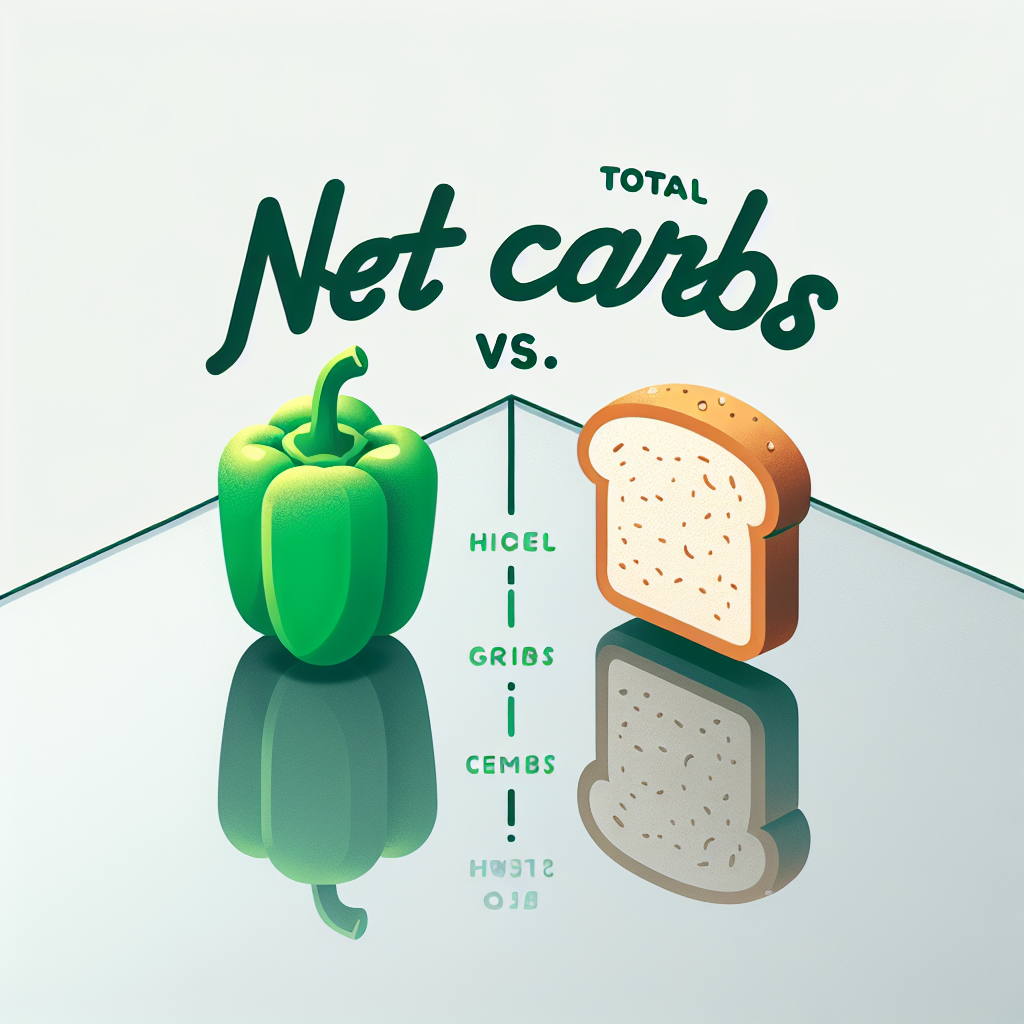Introduction
In recent years, the ketogenic diet has gained immense popularity due to its potential benefits in weight loss, improved mental clarity, and metabolic health. Central to this diet is the concept of carbohydrate restriction, which involves understanding the difference between net carbs and total carbs. This distinction is crucial for those adhering to a ketogenic lifestyle, as it influences food choices and ultimately the success of the diet. This article aims to demystify the concepts of net carbs and total carbs, providing a comprehensive understanding for individuals looking to optimize their ketogenic journey.
Understanding Carbohydrates
Carbohydrates are one of the three macronutrients, alongside proteins and fats, that provide energy to the body. They are found in a variety of foods, including grains, fruits, vegetables, and dairy products. Carbohydrates are composed of sugar molecules, and when consumed, they are broken down into glucose, which serves as a primary energy source for the body’s cells.
There are three main types of carbohydrates:
- Sugars: Simple carbohydrates that consist of one or two sugar molecules. Examples include glucose, fructose, and sucrose.
- Starches: Complex carbohydrates composed of many sugar molecules linked together. Found in foods like potatoes, rice, and bread.
- Fiber: A type of carbohydrate that the body cannot digest. It passes through the digestive tract largely intact, aiding in digestion and promoting satiety.
Total Carbs: The Complete Picture
Total carbohydrates refer to the sum of all carbohydrates in a food product. This includes sugars, starches, and dietary fiber. When you look at a nutrition label, the total carbohydrate content is typically listed, providing a comprehensive view of the carbohydrate content in the food.
Understanding total carbs is essential for anyone tracking their carbohydrate intake, as it provides a complete picture of the carbohydrate content in a particular food. However, not all carbohydrates impact the body in the same way, leading to the importance of distinguishing between net carbs and total carbs.
Net Carbs: The Key to Keto
Net carbs, also known as digestible carbohydrates, are the carbohydrates that are absorbed by the body and have an impact on blood sugar levels. The concept of net carbs is particularly important for individuals following a ketogenic diet, as it helps them manage their carbohydrate intake while maintaining ketosis.
To calculate net carbs, the following formula is used:
Net Carbs = Total Carbs – Fiber – Sugar Alcohols
1. Fiber: Since fiber is not digested by the body, it does not contribute to blood sugar spikes. Therefore, it is subtracted from the total carbohydrate count.
2. Sugar Alcohols: These are a type of carbohydrate used as sweeteners in many low-carb and sugar-free products. Most sugar alcohols have a minimal impact on blood sugar and can be subtracted from the total carbohydrate count. However, it is important to note that some sugar alcohols, such as maltitol, can still affect blood sugar levels to some extent, so they are often only partially deducted.
The Importance of Net Carbs in Keto
The ketogenic diet relies on a high-fat, moderate-protein, and low-carbohydrate macronutrient distribution to shift the body into a state of ketosis. In ketosis, the body burns fat for fuel instead of carbohydrates. To achieve and maintain ketosis, individuals typically limit their daily net carbohydrate intake to around 20-50 grams, depending on individual factors such as age, activity level, and metabolic health.
By focusing on net carbs instead of total carbs, individuals can make informed food choices that allow them to enjoy a wider variety of foods while still adhering to the carbohydrate restrictions necessary for ketosis. This approach can make the ketogenic diet more sustainable and enjoyable in the long term.
Practical Application: Reading Nutrition Labels
Understanding how to read nutrition labels is crucial for anyone following a ketogenic diet. Here’s a step-by-step guide to determining net carbs from a nutrition label:
- Locate the Total Carbohydrates: This information is typically found below the serving size and calories on the nutrition label.
- Identify the Fiber Content: The amount of dietary fiber is usually listed directly beneath the total carbohydrates.
- Check for Sugar Alcohols: If the product contains sugar alcohols, they may be listed under the total carbohydrates or in the ingredients section.
- Calculate Net Carbs: Subtract the fiber and half of any sugar alcohols from the total carbohydrates to determine the net carbs per serving. For sugar alcohols like erythritol, which have minimal impact on blood sugar, you can subtract them entirely.
Common Misunderstandings and Pitfalls
While the concept of net carbs is straightforward, there are several common misunderstandings and pitfalls to be aware of:
- Assuming All Fiber is Equal: Not all fiber is created equal. Soluble fiber, found in foods like oats and legumes, can have a slight impact on blood sugar. Insoluble fiber, found in vegetables and whole grains, does not affect blood sugar.
- Over-relying on Processed Foods: Many processed low-carb products use sugar alcohols and fiber to reduce net carbs. However, these ingredients can cause digestive issues in some individuals and may lead to overconsumption of processed foods.
- Ignoring Portions: It’s important to pay attention to serving sizes when calculating net carbs. Consuming multiple servings can significantly increase your net carb intake.
Conclusion
Understanding the difference between net carbs and total carbs is essential for anyone following a ketogenic diet. By focusing on net carbs, individuals can optimize their carbohydrate intake for ketosis while enjoying a wider range of foods. This approach not only supports the metabolic goals of the ketogenic diet but also makes it more sustainable in the long term.
As with any dietary approach, it’s important to listen to your body and make adjustments as needed. Consulting with a healthcare professional or registered dietitian can provide personalized guidance and support on your ketogenic journey.









Add comment